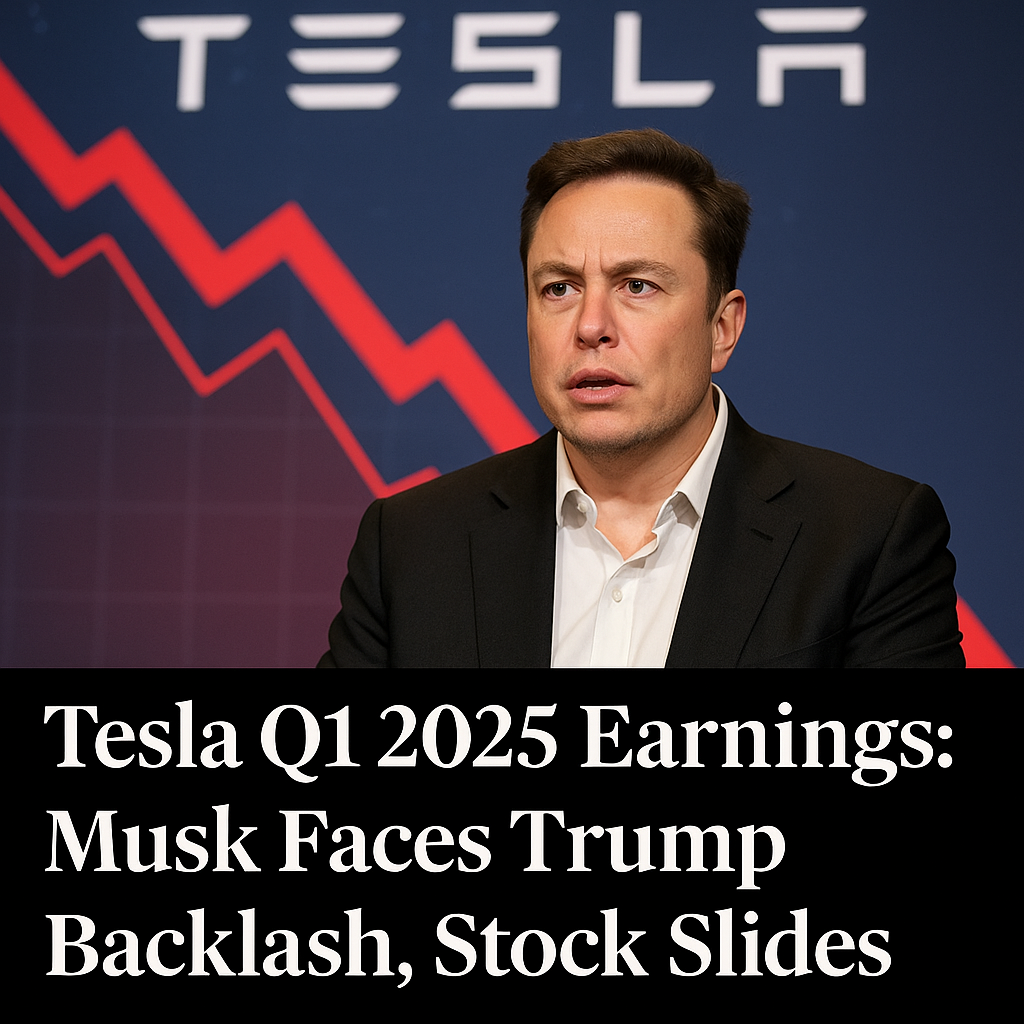Tesla’s earnings report this week may prove to be one of the most consequential in the company’s history, as CEO Elon Musk faces mounting pressure from investors, customers, and analysts alike. With first-quarter sales plunging, political controversy growing, and major product delays causing concern, Tesla’s brand is experiencing what analysts are calling a “code red” moment.
Trade War Fallout and Tesla’s Unique Predicament
Tesla, like many American automakers, is feeling the sting of President Donald Trump’s latest round of tariffs. But Tesla is in a particularly tight spot due to Musk’s close political alliance with the president. Musk, once heralded as a visionary entrepreneur, is now entangled in Trump’s administration through his role in the Department of Government Efficiency (DOGE), a position that has raised eyebrows across the globe.
While most automakers import vehicles or parts from overseas, Tesla’s reliance on domestic production has shielded it from the full brunt of tariffs. However, retaliatory measures—like China’s 125% import tariff—have halted new orders for some Tesla models in key international markets.
Read more on CNN’s coverage of the situation.

Investor Anxiety Mounts Ahead of Earnings Call
Tesla will report its Q1 earnings Tuesday, with analysts forecasting revenue around $21.24 billion and earnings per share of $0.40. However, focus has shifted to the Q&A session where Musk is expected to address burning investor questions.
Among the top concerns:
- Will Musk step back from DOGE to focus on Tesla?
- How is Tesla managing brand damage from Musk’s political affiliations?
- What is the status of Tesla’s self-driving robotaxis and the long-promised Optimus humanoid robot?
These concerns are reflected in Tesla’s investor forum, where questions about leadership, political backlash, and the company’s future direction have dominated discussion.

Political Backlash Damaging the Tesla Brand
Tesla’s troubles extend beyond tariffs and sales figures. A growing consumer boycott, vandalism at facilities, and protests have arisen over Musk’s political involvement and controversial policies. Recent data from Caliber shows only 27% of U.S. consumers would consider buying a Tesla, a steep drop from 46% in early 2022.
According to analysts from Oppenheimer, Tesla’s “ongoing brand erosion” is taking a toll, particularly in Europe and China. China, Tesla’s second-largest market, generated $20.9 billion in 2024 revenue—but rising nationalism and local EV competitors like BYD are gaining favor.
Barclays recently downgraded Tesla’s stock to a target price of $275, citing a “confusing setup” and “weak fundamentals” heading into the earnings call.
Explore more about Tesla’s market performance on Yahoo Finance.
Product Delays and Competitive Pressures
Musk’s grand promises about self-driving cars and humanoid robots have yet to materialize. Tesla’s robotaxi service in Austin, originally scheduled for June, remains in limbo. Meanwhile, Waymo and Uber have already launched autonomous ride-hailing in the area—stealing Tesla’s thunder.
Investors are seeking clarity on timelines, especially with growing competition and diminishing confidence. “We need to hear good news there,” said Dan Ives of Wedbush Securities. “There’s not going to be good news in terms of earnings or what the rest of the year will look like financially.”
More insights available on Reuters Technology.
Can Musk Still Turn Tesla Around?
The big question ahead of the earnings call: can Musk regain control of the narrative and steer Tesla back on course? Some investors believe stepping down from his political role and refocusing entirely on Tesla could begin to repair the damage.
However, doing so may cost Musk political capital with the Trump administration—a trade-off that could further complicate Tesla’s operating environment, especially as tariffs escalate.
Final Thoughts
Tesla remains one of the most-watched companies in the world, but its future now hinges on leadership decisions, political fallout, and its ability to innovate amidst chaos. Tuesday’s earnings call could be a turning point—for better or worse.
